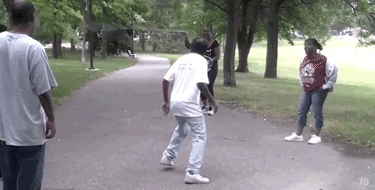Sometimes you read the room wrong.
Several years ago, when I was still leading workshops and such, I was doing an activity with a room full of 7th Grade Texas History teachers. Part of the activity required students (or in this case, teachers) to summarize a brief article we’d just read. They were told they should include all the important stuff and leave out the fluff, and that their summary must be in full sentences and grammatically correct. Also, it had to be exactly 37 words.
The idea, of course, was to encourage students to wrestle with content in order to meet the requirements. 37 words was enough to capture most – but not all – of the important stuff in the article. The process of summarizing under such limits, however, helped increase the chance that each individual would remember the important stuff… even if some of it ended up cut in order to meet the required word count.
Once each individual did their own summary, teachers worked in groups of 3 or 4 to come up with the best “group summary” meeting the same requirements. (Again, the process is how the information gets reinforced. Ideally, there’s actual arguing over what should and shouldn’t be included and how to best express this content in the fewest words.) Final “group summaries” were written on chart paper and taped to the wall. We’d then go around as a group and read each one, critiquing it for accuracy, clarity, and whether or not it covered all the important stuff or contained any “fluff.”
I’d done this activity dozens of times – maybe hundreds. The thing was, I’d mostly taught freshmen at that point in my career, primarily those in the upper half of the academic spectrum. I’d also worked largely with mixed groups of teachers from various grade levels and usually from different schools.
In both settings, from time to time, we’d discover that one of the summaries on the wall wasn’t exactly 37 words. For whatever reason, some turned out to have 36 or 38 words (usually due to transcription errors or simple carelessness). When this happened, I’d rip down the offending summary theatrically and wad it into a rough ball before discarding it.
With overconfident freshmen, this is generally hilarious. Keep in mind these weren’t the work of INDIVIDUALS, but of SMALL GROUPS. These were also kids who probably had a little TOO MUCH self-confidence, and there was no danger of wounding their little psyches with the stunt. Teachers, too, usually found it amusing. They were trapped at a week-long workshop, after all, and anything unexpected or informal was usually a welcome relief.
Not this time, however.
In this particular workshop, we’d done the summaries, formed groups, and posted our “final” efforts on the wall. We’d already talked through several of them, praising specifics about each one, then challenging details which had been left out or weren’t entirely clear. When I got to the fourth or fifth summary, we counted the words together just like we had on all the others, and – oops! – it turned out they had 38.
“Aha!!” I cried as I ripped that puppy right off the wall and wadded it up dramatically before kicking it to the side. “Sucks to be–”
At that moment I realized that no one was laughing. Or even smiling. Twenty-nine professional educators stared at me agape, horrified at what they were seeing. It wasn’t just the group whose summary I’d just executed – it was every single teacher in the room.
When you’re in front of teachers enough times, you learn to roll with just about anything (much like you do with students, although the dynamics are different). I’d handled screw-ups before, disruptions, unhappy participants, even heated arguments between attendees. This was new, and I was momentarily at a loss as to how to proceed. I wasn’t even entirely sure what was happening, or why – although it was beginning to sink in, way in the back of my brain.
“I, um… I do this in class sometimes when the word count is wrong. We usually have too many summaries to go through in one period anyway, and it’s, um… you know… fun?”
The painful pause continued for another decade or two until one of the teachers finally spoke.
“You must get a lot of phone calls.”
I quickly shifted the discussion to context and began talking about my kids and our dynamics. I made an exaggerated (but NOT sarcastic) production of smoothing out the destroyed summary and taping it back up. I think we probably even talked about the importance of adapting activities and styles to the realities of your situation, etc. We moved on, and it was… fine. But I never quite got them fully back in the way I’d have liked.
What happened?
I didn’t read the room – at least not properly. These were 7th grade teachers. That doesn’t make them any more fragile than those teaching high school (quite the opposite, actually) and it doesn’t mean they lack a sense of humor about themselves, their kids, or anything else. I’ve worked with hundreds of 7th grade educators and they’re both saints and supermen for tackling that age group.
It does mean, however, that when they’re doing school stuff at a training designed to help them become better teachers, they’re operating with an eye on how they might use some of what we’re doing in their own classes, with their dynamics and their kids. What I did might work with certain high schoolers, or even with some of these same teachers in a different group, but in THIS context? It was horrifying.
If I want to spin it as positively as possible, it’s the fact that they were SO in the zone to begin with that made what I did seem so horrible. As experienced educators, it was nothing. As 7th grade teachers thinking about 7th grade classrooms, it was unforgivable.
But… sometimes you read the room wrong.
I remember a completely different group of 7th grade teachers halfway across the state (to be fair, when you’re talking about Texas, halfway across the state is a LONG way) who patiently listened to me talk about scaffolding and baby steps and cute little ways to introduce historical writing to pre-teens for several hours one morning. During our first break, I asked a few of them what sort of writing they were already doing in class.
“Our 7th graders all do a complete DBQ each quarter. It’s required by the district.”
For those of you unfamiliar with the terminology, a DBQ is a document-supported essay written in response to a specific prompt. They can be rather meaty even for advanced students much closer to graduation. While I’m sure these were dialed-back versions of the concept, I was nevertheless shocked. I asked whether or not that seemed to work in their district.
“Most of them do pretty well once we’ve talked through a few samples. They’re not all great, but overall it works really well.”
When we reconvened, I asked the rest of the room about their experiences and they were pretty much the same. Turns out I was in a particularly affluent, academically strong region… and that’s just how they rolled.
In that particular case, the fault wasn’t technically mine. I was teaching the workshop I’d been hired to teach. But I should have asked better questions at the beginning. If nothing else, I should have noticed how “polite” everyone was being – as opposed to engaged, or challenged, or even frustrated. I didn’t.
Sometimes you read the room wrong.
Small town districts are different from suburban districts, and neither has much in common with urban districts. Some teachers have decades of experience and a capable, supportive administration. Others are new to the classroom (or the subject, or the grade level) and work for absolute bozos who talk big and schmooze the right board members. Some take themselves way too seriously while others are a bit too martyr-ish for my taste. They all matter, and they all deserve respect, but what that looks like sometimes varies widely from place to place – or even from table to table within the same room.
Obviously this is true of our students as well. It’s extremely unlikely you’ll be able to regularly “differentiate” your lessons in service of the individual strengths or needs of each of the 30+ kids in front of you each class period, and there’s something to be said for the idea that they need to learn to adapt to us as much as we try to adapt to them. But basic effectiveness often requires “reading the room.” And sometimes you read the room wrong.
Much like in my workshop example, for me it’s usually humor that either builds great rapport or unintentionally drives a wedge between myself and certain students. For other teachers its efforts to establish classroom discipline or set appropriate academic expectations. Consistency is essential to any effective learning environment, but so much of what we do is subjective and situation-specific. With that much natural paradox, there are times your efforts will backfire.
And just to complicate things, unlike with my horrified Texas History teachers, it’s not always easy to tell whether the problem is you and what you’re attempting or them and their unwillingness to cooperate. Sometimes the room doesn’t want to be read!That’s OK. You get better at it. After 25 years, you’ll still probably screw up from time to time, but it happens less and less, and you get better at managing it. Until then, cut yourself some slack. You’d be surprised how often you’re doing better than you think. After all, sometimes you read the room wrong.



 I’ve fallen into something of a rut, and I worry if I don’t commit a few things to paper (er… you know what I mean), it may gradually evolve into the new normal. That’s one of the trickiest things about ruts – it doesn’t take long before you feel like you’ve always been in them, and that perhaps in reality there are no other options, no better roads or directions. There is only… THE RUT.
I’ve fallen into something of a rut, and I worry if I don’t commit a few things to paper (er… you know what I mean), it may gradually evolve into the new normal. That’s one of the trickiest things about ruts – it doesn’t take long before you feel like you’ve always been in them, and that perhaps in reality there are no other options, no better roads or directions. There is only… THE RUT.  One of the coaches in my district approached me last week and asked if I had a moment to talk about a few students. Each of them had come pretty close to passing my class but had fallen short largely due to things entirely within their control – not turning in study guides for easy points, not participating in review sessions, etc.
One of the coaches in my district approached me last week and asked if I had a moment to talk about a few students. Each of them had come pretty close to passing my class but had fallen short largely due to things entirely within their control – not turning in study guides for easy points, not participating in review sessions, etc. The first was how graciously he approached the issue. He wanted to make sure there was nothing suggesting pressure from him or anyone else to do anything I might be uncomfortable with or consider unethical – and I think he meant it. These kids weren’t athletic superstars or anything. I teach freshmen, and while they may have potential, none of them are critical to the success of anything happening on a track, field, or court next year. In his mind, it was about what being involved and playing sports MIGHT do for them overall – including, but not limited to, academically.
The first was how graciously he approached the issue. He wanted to make sure there was nothing suggesting pressure from him or anyone else to do anything I might be uncomfortable with or consider unethical – and I think he meant it. These kids weren’t athletic superstars or anything. I teach freshmen, and while they may have potential, none of them are critical to the success of anything happening on a track, field, or court next year. In his mind, it was about what being involved and playing sports MIGHT do for them overall – including, but not limited to, academically. The second reason I considered his question is that the kids in question are genuinely good kids, at least most of the time. They’ve each shown flashes of far more ability than their grades would suggest. I know something of their hopes and visions for their futures, and while ambitious, they’re all certainly plausible. (None of them are counting on the NBA or YouTube stardom to get them through adulthood.) These weren’t kids with a 12% or a history of serious discipline problems; they just didn’t always show the focus or determination one might hope.
The second reason I considered his question is that the kids in question are genuinely good kids, at least most of the time. They’ve each shown flashes of far more ability than their grades would suggest. I know something of their hopes and visions for their futures, and while ambitious, they’re all certainly plausible. (None of them are counting on the NBA or YouTube stardom to get them through adulthood.) These weren’t kids with a 12% or a history of serious discipline problems; they just didn’t always show the focus or determination one might hope. Finally, there was my stubborn belief in the power of extracurriculars in kids’ lives. I’ve had the honor of working closely with
Finally, there was my stubborn belief in the power of extracurriculars in kids’ lives. I’ve had the honor of working closely with  So the question before me was one of probabilities and teacher philosophy. Coach was quite transparent about the fact that he couldn’t guarantee anything either way. While he hoped he’d be able to work with these kids as they continued through high school, there was no certainty they’d stay on the team. Playing or not, there was no way to know if they’d take advantage of the extra support and improve academically going forward. It’s possible I might nudge their grades up a few percentage points and all I’d be doing was feeding their delusions about how school works.
So the question before me was one of probabilities and teacher philosophy. Coach was quite transparent about the fact that he couldn’t guarantee anything either way. While he hoped he’d be able to work with these kids as they continued through high school, there was no certainty they’d stay on the team. Playing or not, there was no way to know if they’d take advantage of the extra support and improve academically going forward. It’s possible I might nudge their grades up a few percentage points and all I’d be doing was feeding their delusions about how school works. There was one other reality to consider. While there’s no doubt in my mind any of these kids could have passed my class with a little more effort, the true difference between a 57% and a 61% is painfully subjective and impacted by any number of factors. I’d love to tell you that my English instruction and assessment is so data-driven and pedagogically holy that every tenth of a percentage point reflects a very specific level of skills and knowledge in each student, but
There was one other reality to consider. While there’s no doubt in my mind any of these kids could have passed my class with a little more effort, the true difference between a 57% and a 61% is painfully subjective and impacted by any number of factors. I’d love to tell you that my English instruction and assessment is so data-driven and pedagogically holy that every tenth of a percentage point reflects a very specific level of skills and knowledge in each student, but  If I do it, I told my colleague, the students would have to be fully informed of the decision (as opposed to thinking they’d somehow “slid by” at the last minute). This isn’t about wanting credit for the decision (I’m not sure enough of myself to feel too pious about it). It’s about wanting them to understand the reasoning behind it and the opportunity they have to take advantage of the moment. “There are adults in this building who believe you have better things in you than what you’ve shown so far and who want to give you the chance to express them. We’re trying to open the door a bit; what you do with it is up to you.”
If I do it, I told my colleague, the students would have to be fully informed of the decision (as opposed to thinking they’d somehow “slid by” at the last minute). This isn’t about wanting credit for the decision (I’m not sure enough of myself to feel too pious about it). It’s about wanting them to understand the reasoning behind it and the opportunity they have to take advantage of the moment. “There are adults in this building who believe you have better things in you than what you’ve shown so far and who want to give you the chance to express them. We’re trying to open the door a bit; what you do with it is up to you.”